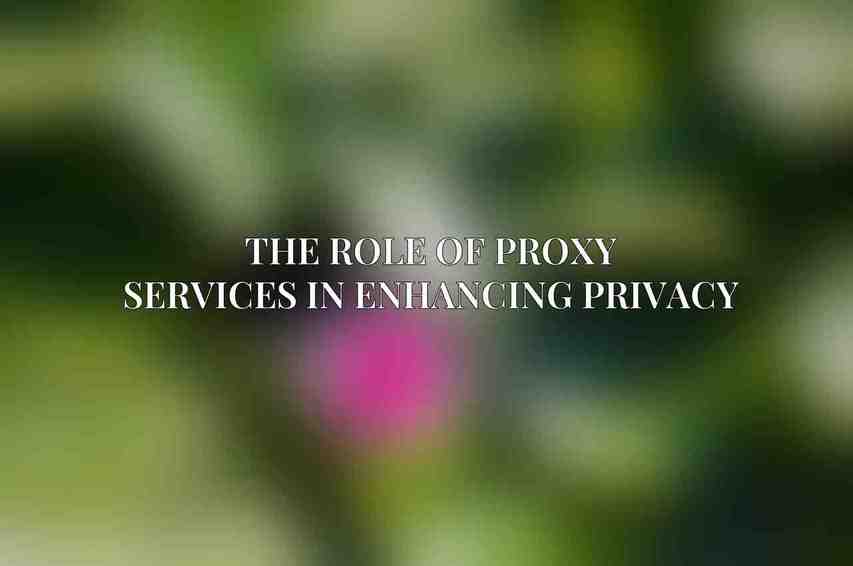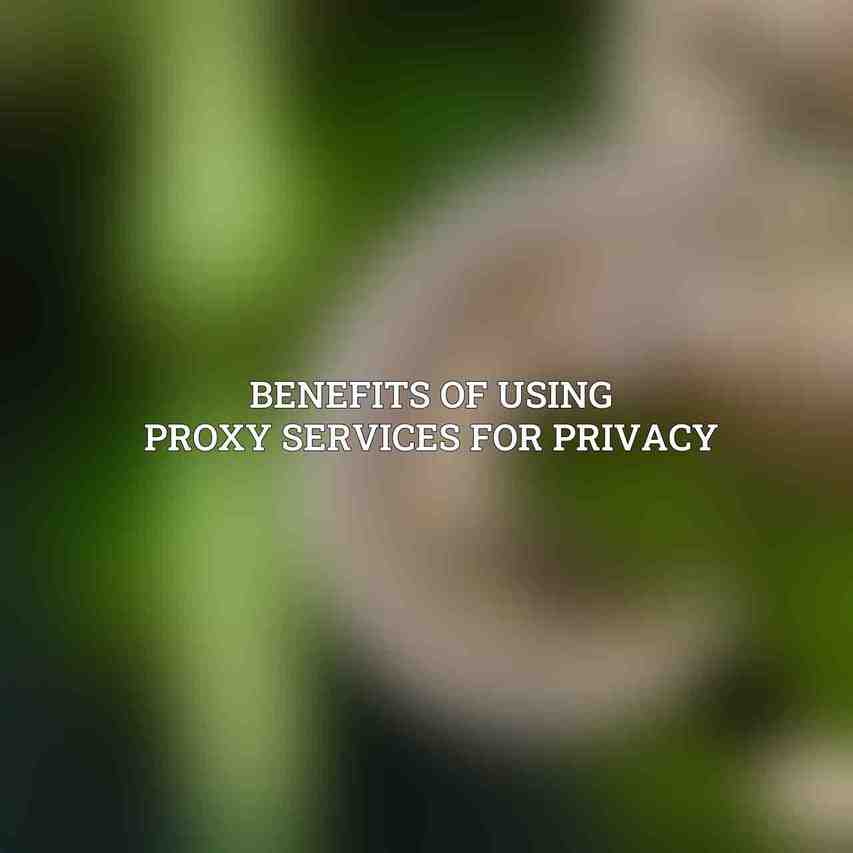Concerns surrounding online privacy have become paramount as individuals become more reliant on the internet for various activities. the exposure of personal data through online activities is a significant issue facing internet users. every click, search, and interaction online can lead to the collection and storage of personal information by websites, advertisers, and social media platforms. Furthermore, the looming specter of government surveillance and data retention laws adds another layer of complexity to the privacy world. Dive deeper into Ultimate Guide to Web Scraping Using Proxy Services
The Role of Proxy Services in Enhancing Privacy

Proxy services play a crucial role in safeguarding online privacy by offering a layer of anonymity and security. These services act as intermediaries between users and the internet, concealing the user’s original IP address and routing their internet traffic through different servers. There are various types of proxy services, including HTTP/HTTPS proxies, SOCKS5 proxies, residential proxies, and datacenter proxies, each serving different purposes and levels of anonymity.
How proxy servers work:
- Acting as an intermediary between client and server.
- Forwarding requests and responses while hiding the original IP address.
Benefits of Using Proxy Services for Privacy

The utilization of proxy services yields several benefits that contribute to enhancing online privacy and security:
IP address masking: Prevents websites and applications from tracking your location and hides your online activities from prying eyes.
Data encryption: Secures traffic between the client and proxy server, protecting sensitive data from interception and eavesdropping.
Bypassing geo-restrictions: Allows access to region-blocked content and enhances experiences like streaming and gaming.
Improved security: Shields against malicious websites, phishing attacks, and intrusive ads and pop-ups.
Choosing and Using Proxy Services Effectively
Selecting the right proxy service involves considering several factors such as privacy features, speed, server locations, and overall reputation. Once chosen, users can configure their browsers or applications to route traffic through the proxy server. Additionally, proxy plugins, extensions, or integrating a VPN with built-in proxy functionality are common ways to utilize proxy services effectively.
Limitations of Proxy Services
While proxy services offer significant privacy advantages, they also come with limitations:
Some services may not fully encrypt traffic, leaving vulnerabilities.
Law enforcement agencies and governments may access proxy server logs, compromising user anonymity.
The cost of residential proxies with high anonymity levels can be prohibitive for some users.
Websites and applications may detect and block proxy usage, limiting access to certain content.
Best Practices for Enriching Online Privacy
To enhance online privacy effectively, users should adhere to best practices that include:
Using a combination of privacy tools like VPNs and browser extensions.
Being cautious about sharing personal data online.
Avoiding suspicious websites and email attachments that may compromise privacy.
Regularly reviewing and adjusting privacy settings on social media and other online accounts.
Staying informed about evolving online privacy risks and mitigation strategies.
In a world where online privacy is increasingly under threat, integrating proxy services and adopting best practices are essential steps in safeguarding personal information and digital security. By leveraging these tools and strategies, individuals can navigate the digital realm with greater peace of mind and control over their online footprint.
Frequently Asked Questions
What is a proxy service?
A proxy service acts as an intermediary between your device and the internet. It masks your IP address, providing anonymity and enhancing online privacy. Check this blog on Leveraging Proxy Services for Social Media Management
What are the benefits of using a proxy service?
Using a proxy service can help protect your online identity, access geo-restricted content, improve online security, and prevent websites from tracking your browsing habits.
How do I choose a reliable proxy service?
When selecting a proxy service, look for one that offers a secure connection, a large number of servers in multiple locations, good customer support, and a clear privacy policy.
Are there free proxy services available?
Yes, there are free proxy services available, but they may have limitations in terms of speed, security, and reliability. Paid proxy services typically offer better performance and customer support.
Is using a proxy service legal?
The legality of using a proxy service varies by country and the intended use. It is important to check the laws and regulations in your region before using a proxy service for certain activities. Dive deeper into Bypass Geo-Restrictions with Reliable Proxy Services

